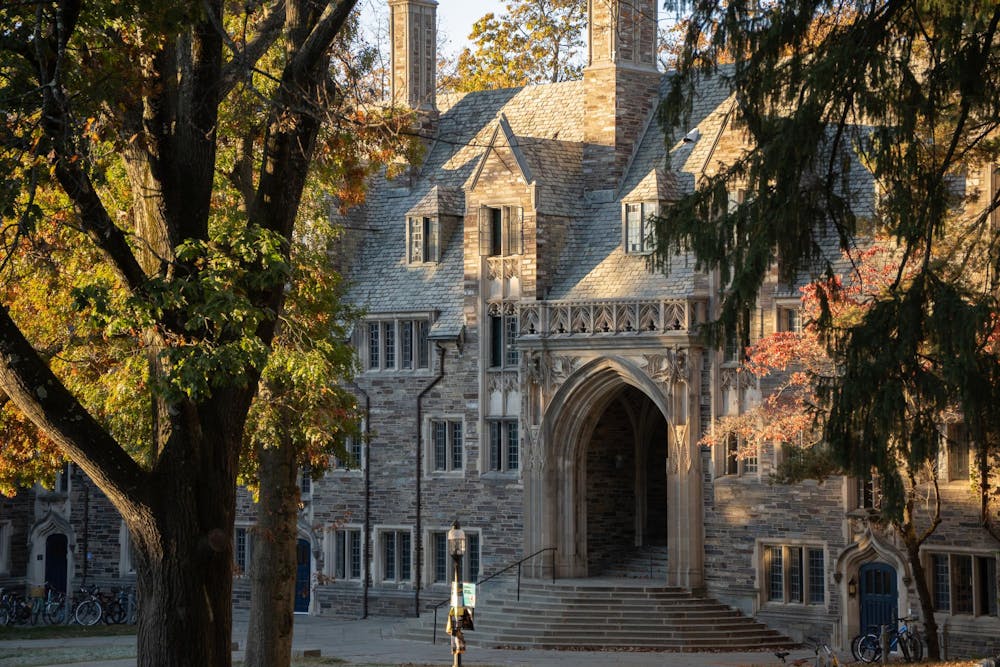The University announced sweeping changes to its housing and dining policies on Monday, requiring all juniors and seniors living on campus to purchase a University meal plan starting in the fall of 2026. The move drew immediate frustration from students who currently rely on, or were planning for, fully independent dining.
The new policy eliminates the “independent” status for dining and room draw and mandates that all students in University housing select one of three dining plans: an unlimited plan, a Block 160 plan (10 meals per week), or a minimal Block 32 plan (two meals per week). The Block 32 option is only available to students who also have a plan with an eating club or co-op.
“I was very disappointed with seeing this change, because I was looking forward to continuing to cook in my senior year,” Remy Garcia-Kakebeen ’27 told the ‘Prince.’
Garcia-Kakebeen, who is currently on an independent meal plan, said that “taking away the independent meal plan would restrict [her] to very specific eating hours” that may conflict with her busy schedule.
Brianna Melanie Suliguin ’27 said that being independent helped her manage her “hectic rehearsal schedule” and late-night study sessions, which were not conducive to dining hall hours.
“Over the past two years, I found myself never actually showing up to the dining halls at the right times,” Suliguin said. “I wanted the liberty to prepare my food when all the dining halls and late meal were closed.”
Suliguin is a former staff Prospect writer for the ‘Prince.’
The University included in its announcement that the changes are designed to address a “significant drop” in student satisfaction after sophomore year, attributed to a “disruption of community” around dining habits. A 2024 dining and report from the Huron Consulting Group about dining, which was among the factors guiding the University’s decision, found that co-op and eating club selection causes “social stratification” as well as “a sense of isolation” in some.

However, some students on the independent plan reported high satisfaction with their choice.
“Myself and my fellow independent friends don’t feel [lonely], and the majority of my friend group is actually in an eating club, but I don’t feel disconnected from them,” Garcia-Kakebeen said.
Chloe Chan ’27, who is currently on the Unlimited dining plan but was planning on going independent next year, shared that the dining option was “incredibly personal” to her, both “community-wise and culturally.”
“I’ll never forget the upperclassmen in Spelman who made me homemade mapo tofu or kimchi jiggae while I was a homesick freshman,” Chan said. “My dream was always to go independent with my best friends senior year and pay that forward. Especially with my Cantonese roots, food is comfort, it’s family, and it’s home.”

Other students reported that the independent option offered flexibility, a healthier lifestyle, and cultural comfort.
“I get really homesick and the best way to remedy that is through my cultural food: Barely any of that is available at the dining halls, so I’ve been learning how to prepare the food for myself,” Suliguin said. “This is also helping me understand what is required to make healthier decisions in my food.”
Some students also expressed disappointment about the elimination of independent status in room draw. Now, students will neither be able to draw as an independent nor receive preference for upperclassmen rooms that facilitated the independent dining option — rooms that had kitchens. Students are worried that these rooms, such as the ones in Spelman, will go to waste.
“The rooms could just go to whoever gets lucky in the draw, and those kitchens might end up sitting unused,” Suliguin said. “It feels like a missed opportunity to support students with different needs and lifestyles.”
“The potential of a Spelman quad having four eating-club students is pretty ridiculous,” Reece Lapas ’27 added.
At a meeting of the Council of the Princeton University Community later that day, Vice President of University Services Chad Klaus said that the changes had been “informed significantly” by student input, including the dining pilot, a 2024 report by Huron Consulting Group, and conversations with the Student Life Committee of the Undergraduate Student Government. Monday’s memo from Klaus and other top administrators cited budget cuts as the rationale for scaling back the two University-sponsored meals offered to upperclassmen.
“With our political climate, I can understand why the University is scaling its funding structures, but this feels like a step in the wrong direction. This actively harms low income and food insecure students. Seeing as Princeton is one of the wealthiest per capita universities, this move feels mind boggling,” Reagan said.
Mere hours following the announcement, a change.org petition calling on the University to “restore our upperclass meal swipes and fair room drawing” was started by Chan. As of Sept. 29, it has garnered 581 signatures.
“I’m hoping that the University does see that a lot of undergraduates are not really supporting this change; hopefully, they’ll take that into consideration,” Garcia-Kakebeen said.
Luke Grippo is an assistant News editor for the ‘Prince.’ He is from South Jersey and usually covers University and town politics, on a national, regional, and local scale. He can be reached at lg5452@princeton.edu.
Sena Chang is a senior News writer for the ‘Prince.’ She typically covers campus and community activism, the state of higher education, and alumni news.
Please send any corrections to corrections[at]dailyprincetonian.com.








